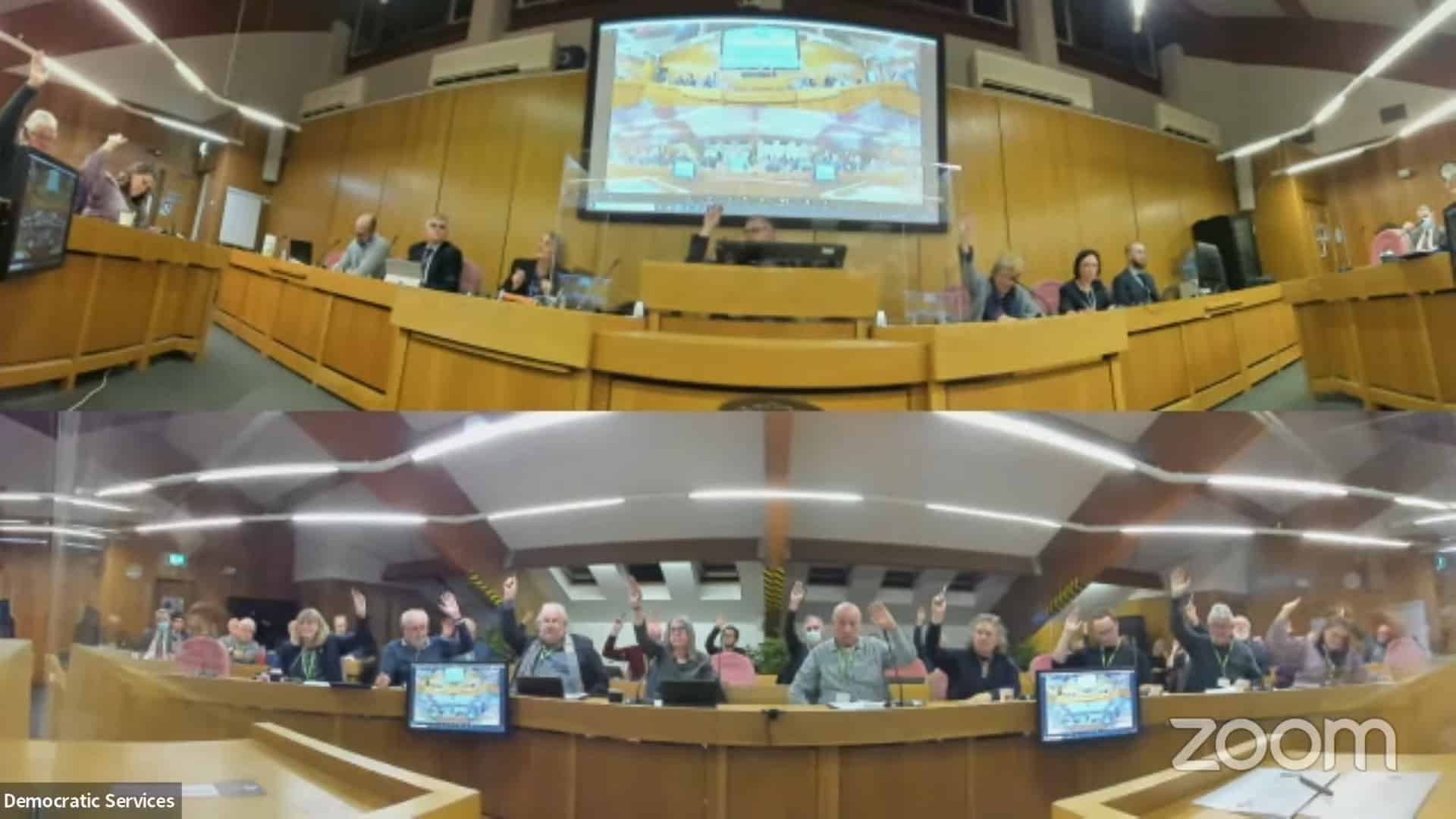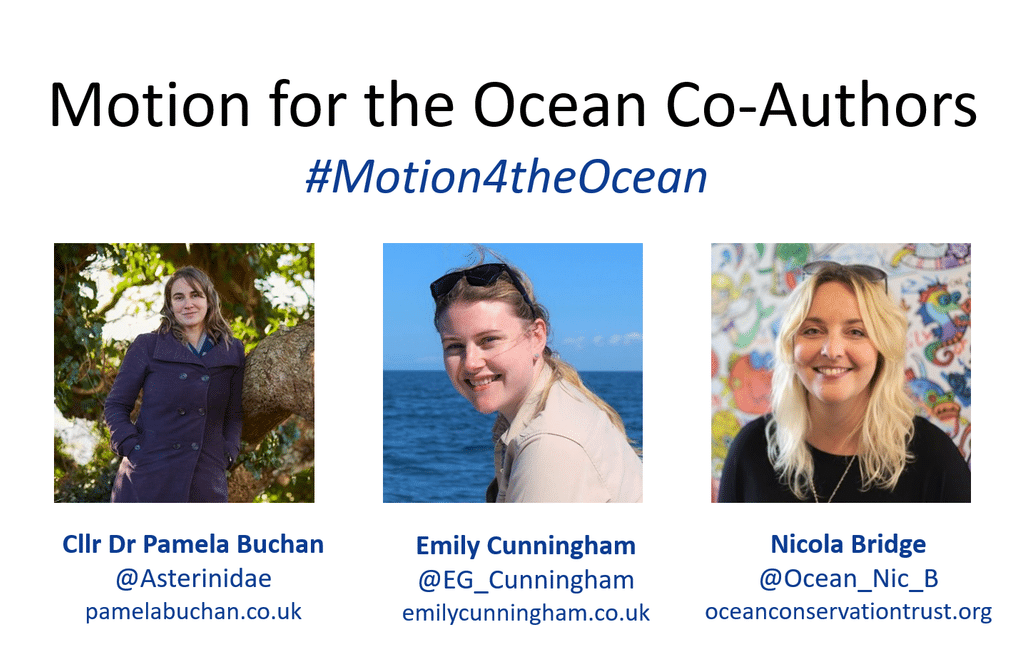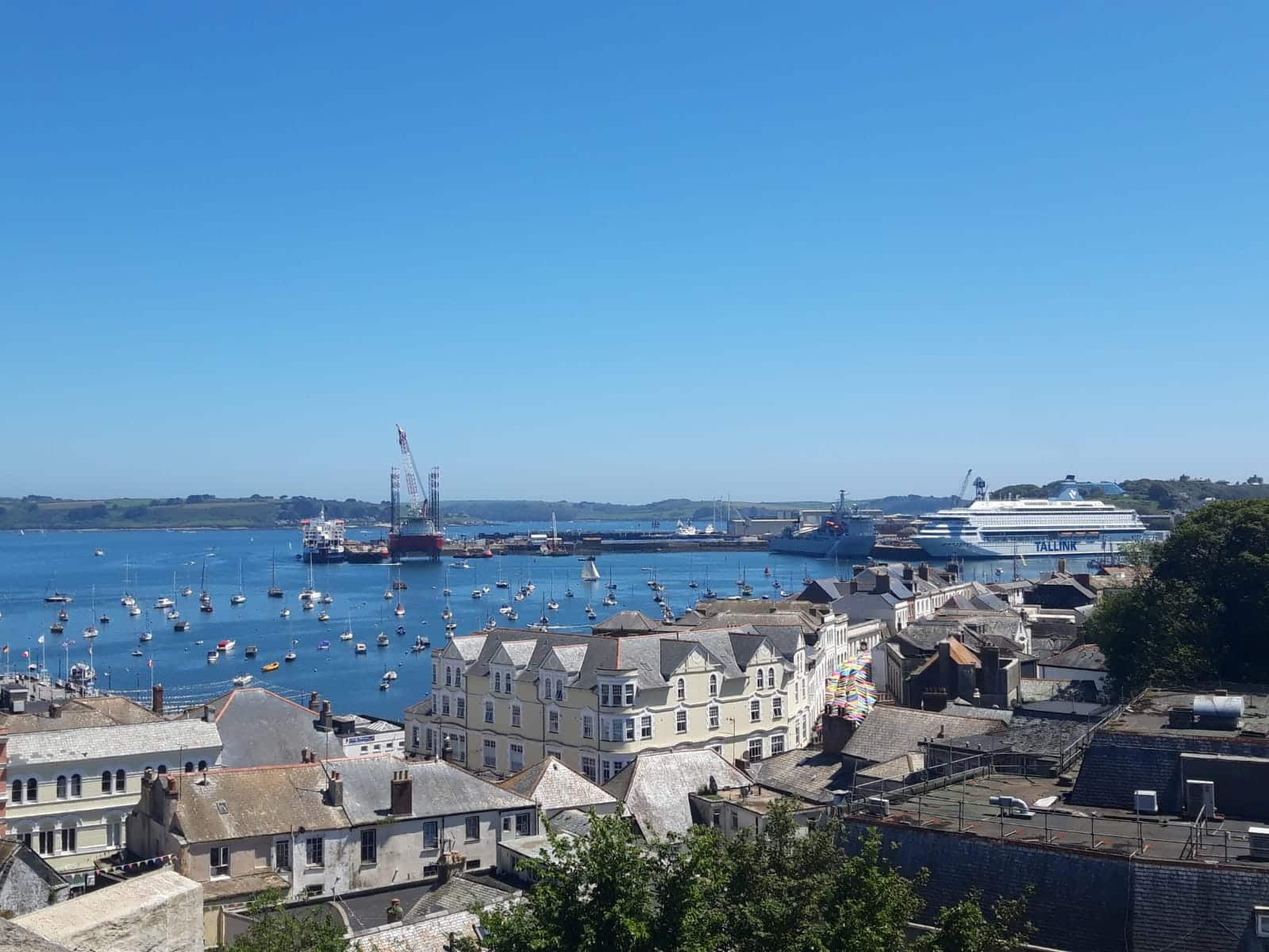“All those in favour of the Motion for the Ocean?”
I held my breath as I waited to see how the Councillors would vote. 12 months of hard work had led to this moment, and I hoped we had done enough. Seconds crawled by as my heart pounded in my chest… then, from all around the room, hands shot up in support.
“The Motion for the Ocean is passed, unanimously. Next item of business….”
My heart swelled and my eyes filled with tears. My council had just unanimously made an Ocean Recovery Declaration – meaning they had committed to taking action for ocean recovery. It was the proudest moment of my professional life.

Local Council passing the Motion for the Ocean in February 2022. Picture credits: Emily Cunningham
A new approach
My background is in marine and coastal conservation, working mainly in the UK. Over the 10 years of my career so far, I have tried every tool in the conservation toolkit to protect our ocean. I have marched in protests, ran public campaigns, led a national dive survey programme, developed pioneering environmental education projects, met with countless Government Ministers… and yet despite the efforts of me and so very many others, the health of our ocean continues to decline. It can feel like a losing battle.
In 2019, I had taken on a role working with local government (councils) from all around England’s coast. Until that point, I hadn’t really thought of local government as a significant actor in ocean health. But over the course of the next year, I began to realise just how much a council had in their direct power to influence ocean health and so I started to introduce more ocean focussed thinking onto our work programme. The response from our members was incredible – what I had assumed would be a hard sell was in fact like pushing on an open door. But whilst the appetite to take action for ocean recovery was there, an understanding amongst Councillors and Council Officers on what they could actually do to help our ocean was lacking.
Around that time, I attended the UK’s annual Coastal Futures Conference – a gathering of marine and coastal professionals in London – and met Cllr Dr Pamela Buchan. Pamela is a City Councillor and marine social scientist and was, at that time, finishing her PhD on marine citizenship. Pamela had also recognised the need to help politicians and local residents get to grips with the critical issue of ocean health and had come up with the idea of a Motion for the Ocean for this very purpose.
A motion is a proposal put forward at a meeting of Councillors and is one of the ways in which local policy is set.
Over the next 10 months, together with Nicola Bridge, Head of Ocean Advocacy and Engagement at the Ocean Conservation Trust, we developed a model Motion for the Ocean. The model Motion for the Ocean recognises that local authorities have direct responsibilities which can impact – for better or for worse – marine and coastal health. The motion is a series of eight evidence-based pledges, carefully designed to focus on the actions that will deliver the greatest benefits for ocean health. It seeks to embed ocean recovery in local decision-making, ensure that any development of the blue economy delivers both local prosperity and ocean recovery and also seeks to empower the next generation of marine citizens.

Motion for the Ocean Co-Authors – Cllr Dr Pamela Buchan, Emily Cunningham and Nicola Bridge.
So far, eight councils have made an Ocean Recovery Declaration using our Motion for the Ocean. These include councils of all sizes – from a Town Council to a County Council – showing that all councils can make a difference for ocean health. We are also thrilled that as well as councils on the coast, some councils further upstream have also recognised that they need to act. No matter where we live, the health of the ocean impacts us all and we all have a part to play in protecting it. Inland areas impact the ocean at source – through water, waste, and carbon emissions – and need to step up too.

Falmouth, England – one of the eight councils to have made an Ocean Recovery Declaration so far. Photo credits: Emily Cunningham
These eight councils are now in the process of turning their declarations into action and I am buoyed with optimism at the developing action plans that are emerging all around our coastline. Although this action is admirable, we need all councils to play their part in order to turn the tide. Each and every one of us has the power to become a marine citizen and it starts with the simple action of asking your local Councillor to table a Motion for the Ocean at their next Council meeting. Like I did, and like so many others have since.
Although the Motion for the Ocean started in England, it can be applied anywhere on Earth – so no matter where you live, you can get involved.
All the information you need is on www.oceanconservationtrust.org/project/the-motion-for-the-ocean/ and be sure to tell us if your local council takes this forward using #Motion4theOcean on Twitter and Instagram.

